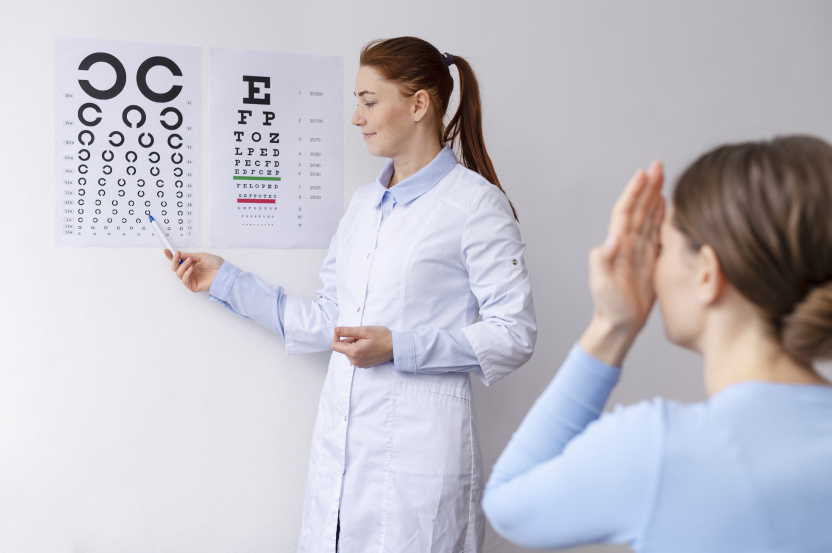August is National Eye Exam Month, a time to raise awareness about the importance of regular eye exams for people of all ages.
Why You Need an Eye Exam This Year
Your eyes are one of your most important sense organs. They allow you to see the world around you, and they play a vital role in your overall health and well-being. That’s why it’s important to get regular eye exams.
An eye exam can help detect eye problems early on, when they are most easily treated. Some common eye problems that can be detected with an eye exam include:
- Refractive errors (nearsightedness, farsightedness, and astigmatism): These conditions occur when the shape of the eye does not allow light to focus properly on the retina. Refractive errors can be corrected with glasses or contact lenses.
- Glaucoma: This condition is a leading cause of blindness. It occurs when the pressure in the eye builds up, damaging the optic nerve. Glaucoma can be treated with medication or surgery.
- Cataracts: This condition occurs when the lens of the eye becomes cloudy. Cataracts can impair vision and make it difficult to see clearly. Cataracts can be treated with surgery.
- Macular degeneration: This condition is a leading cause of vision loss in older adults. It occurs when the macula, the part of the retina responsible for sharp central vision, degenerates. Macular degeneration can be treated with medication or surgery.
In addition to detecting eye problems, an eye exam can also help:
- Screen for diseases: Some diseases, such as diabetes and high blood pressure, can damage the eyes. An eye exam can help screen for these diseases and detect any early signs of damage.
- Evaluate your overall eye health: Your eye doctor can evaluate the overall health of your eyes, including the health of your retina, optic nerve, and eyelids.
- Prescribe glasses or contact lenses: If you have refractive errors, your eye doctor can prescribe glasses or contact lenses to correct your vision.
If you haven’t had an eye exam in the past year, it’s time to schedule one. Eye exams are important for people of all ages, but they are especially important for people who are at risk for eye problems, such as people with diabetes, high blood pressure, or a family history of eye disease.
Don’t wait until you have vision problems to get an eye exam. Schedule your eye exam today and protect your vision for years to come.


